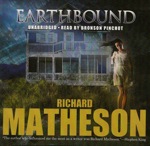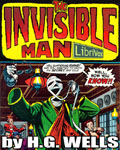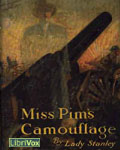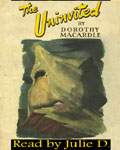
 Earthbound
Earthbound
By Richard Matheson; Read by Bronson Pinchot
6 CDs – Approx. 6.5 Hours [UNABRIDGED]
Publisher: Blackstone Audio
Published: September 2010
ISBN: 1441756886
Themes: / Fantasy / Horror / Gothic Horror / Haunted House / Ghosts / Succubi / Marriage / Sex /
David and Ellen Cooper came to the lonely beach-side cottage in hopes of rekindling their troubled marriage. Yet they are not alone on their second honeymoon. Marianna, a beautiful and enigmatic stranger, comes to visit David whenever Ellen is away. Who is Marianna, and where has she come from? Even as he succumbs to her seductive charms, David realizes that Marianna is far more than a threat to his marriage, for her secrets lie deep in the past and beyond the grave. And her unholy desires endanger the life and soul of everyone she touches.
TV writer David Cooper is trying to revitalize his shaky marriage by returning with his wife to their original honeymoon location. While the Coopers do end up in the same sea-side resort, they find their original digs are unavailable and have to stay in a disused beach cottage. There, every time Ellen steps out, or goes to sleep, a sexy woman named Marianna appears and quickly seduces David. She fucks him harder than he’s ever been fucked and that’s the entirety of Earthbound‘s simple setup. The plot from there is but a dance between David’s realization of it and his doing something.
There are essentially four characters in Earthbound. Approximately ninety-five percent of the novel is set within the confines of the haunted cottage. It’s all told in a tight third person, over the shoulder perspective. We get the thoughts of David’s mind in elaborate detail and hear the other two characters exclusively from his POV. It becomes immediately clear to the reader that Marianna is not only a ghost but also a quasi-succubus. Matheson never actually names the marriage-ruining ghost as a sexual vampire, instead the characters only describe Marianna as simply the ghost of a depraved woman. It takes nearly a half-dozen sex sessions with the vitality draining Marianna, and several visits from a helpful neighbor (who lives just up the beach) to point this out to David. It then takes several more for him to actually believe what he’s being told and experiencing. David wants to believe he’s just been cheating on his wife with a mysterious stranger – but the evidence he’s been presented with is fairly convincing. In the meantime David gets into several, what I would call, disappointment swaps with Ellen, they go out to dinner once and have some unsatisfying sex. About half way through the book I began expecting that Ellen’s many convenient absences would be explained by her being haunted by an incubus – I was wrong on that score.
I don’t think this book is really all that horrible. The storytelling flows quite smoothly and likely achieves the purpose intended. Unfortunately it carries no lasting impression. Being a confirmed bachelor, I guess I just don’t want to read about people fixing their marriages at haunted seaside cottages. And, as for it being one of the gothic novels of psychology, I far prefer the depths of ambiguity in Henry James’ The Turn Of The Screw to the shallows of Earthbound. This is the fourth Matheson novel I’ve read, the first being I Am Legend |READ OUR REVIEW| and the second being The Incredible Shrinking Man |READ OUR REVIEW|. Like the former, Earthbound lacks the one thing I really cared about: a haunting message to go with its competent psychological character study. Like the second, The Incredible Shrinking Man, I came away from Earthbound thinking it was absolutely the kind of book I never need read again, a story premise with a character who was too wrapped up in his own psychology for me to care what was happening to him. I guess I just want some ideas to go with my characters and not to simply see them interacting or responding to a set of unusual circumstances. Earthbound, therefore, is most similar to the third Matheson novel I read, A Stir Of Echoes |READ OUR REVIEW|. If you liked A Stir Of Echoes I suspect you will enjoy Earthbound. Myself, I can only recommend the earth-shatteringly good I Am Legend and Matheson’s truly amazing short story Born Of Man And Woman.
Speaking of short stories, when Earthbound was first published (by Playboy Paperbacks in 1982) Richard Matheson used a pseudonym, “Logan Swanson.” Reading around the internet, I got the impression that he’d balked at some editorial changes in the Playboy Paperbacks edition – and so declined to have his real name put on the cover. But, the story is probably a little more complicated than that. After doing some more digging I noted that one Amazon reviewer had this to say: “…not a lot of people realize this, but this book started out as a short story written very early in Matheson’s career.” Noting that the succubi in fiction article on Wikipedia includes one Matheson story, called The Likeness Of Julie. I dug up my copy of Shock II (it’s also collected in Hot Blood: Tales Of Erotic Horror) and read it. The Likeness Of Julie, which is just 9 or 10 pages, has a bit more of a punch than Earthbound, and is clearly the predecessor to a novelized re-working. Interestingly, it too was first published “as written by Logan Swanson” in a 1962 anthology called Alone By Night. And the pseudonym there was not likely due to a protest, but rather the fact that there was another story by Matheson in the collection. In any case, this Blackstone Audio edition uses the author’s full text version of Earthbound.
Bronson Pinchot, has been recording up a storm for Blackstone Audio of late (there are currently 44 titles with him as a narrator). For Earthbound he does little extraordinary other than voicing three females, two carnal women and one ethereal succubus. Surprisingly, he doesn’t have to stretch very much for in this small scale novel; he pretty much makes himself invisible in the text. I’d like to see him tackle some more meaty material.
Posted by Jesse Willis


 After three recent podcasts (two for SFBRP, one for the SFFaudio Podcast) I’ve prepared a listening list of the topic of INVISIBILITY. Invisibility is, I argue, ultimately not a scientific phenomenon but rather a literary one. When we use the word “visible” we are referring to something that is either seen or see-able. I can say something is more (or less) visible than something else and be correct. This concept of gradations of visibility is quite legitimate, and doesn’t often lead to any conceptual difficulty. But, we also have a tradition of negating concepts that we think we understand well – and then expecting that negation to exist too.
After three recent podcasts (two for SFBRP, one for the SFFaudio Podcast) I’ve prepared a listening list of the topic of INVISIBILITY. Invisibility is, I argue, ultimately not a scientific phenomenon but rather a literary one. When we use the word “visible” we are referring to something that is either seen or see-able. I can say something is more (or less) visible than something else and be correct. This concept of gradations of visibility is quite legitimate, and doesn’t often lead to any conceptual difficulty. But, we also have a tradition of negating concepts that we think we understand well – and then expecting that negation to exist too. 
 What Was It?
What Was It?
 Miss Pim’s Camouflage
Miss Pim’s Camouflage




